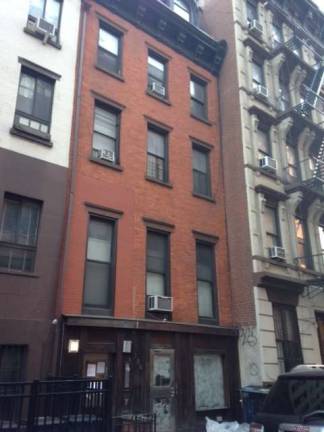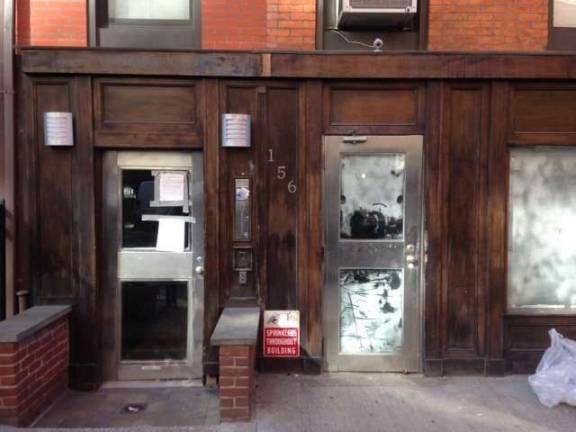Landlord sued for running illegal hotel


In a continued battle between the city and some Manhattan property owners, officials have filed suit against a Chelsea landlord and an associate for converting a rent-stabilized walk-up and running it as an illegal hotel advertised on Airbnb.
The two men, Philip Baldeo, who owns the four-story building at 156 West 15th Street, and Miguel Guzman, who officials say operated the illicit hotel, have already been the subject of at least 13 illegal hotel violations since 2014, according to the complaint. The property has also been cited for other 23 building and fire violations, as well as three unspecified criminal summonses, according to the Office of Special Enforcement. The penalties for the building and fire violations amount to $11,000 so far.
According to the suit, Baldeo and Guzman were renting out six of the nine units in the building to travelers and transient occupants for long periods of time, when the units should have gone to New York residents.
A report released this week by researchers at Montreal’s McGill University says that Airbnb has eliminated between 7,000 and 13,500 housing units from the city’s long-term rental market. That reduction resulted in a median cost increase of 1.4 percent, or $380, for long-term rent over the last three years, the report noted.
City officials, using a nuisance abatement law, take property owners to court when landlords fail to address legal occupancy laws for extended periods of time. For an Airbnb posting to be legal the property owner must be present during travelers’ stay, which must be of less than 30 days. According to the Office of Special Enforcement, over half of Airbnb listings in the city advertise entire apartment occupancy, which has been illegal in New York State since 2016. Offenders are subject to a $1,000 fine for their first violation, $5,000 for their second and $7, 500 for a third.
The McGill report, commissioned by the Hotel Trades Council of the AFL-CIO, also found that two-thirds of Airbnb’s revenue in the New York City metropolitan region from September 2014 through August 2017 was derived from listings that were likely illegal under state law.
The report was cosponsored by numerous city community, housing and tenant organizations and authored by researchers from the university’s School of Urban Planning.
Lawmakers and tenant advocates have become increasingly concerned with Airbnb rentals given the desperate New York Housing market, which, as the complaint states, is in “a legislatively declared housing emergency.”
“The conditions created by the defendants’ illegal conduct in the Subject Building negatively affect the health, safety, security, and general welfare of the residents of the City of
New York and its visitors,” the 30-page complaint, filed in state Supreme Court on January 19, alleges.
Chelsea/Hell’s Kitchen is among five neighborhoods where a majority of Airbnb listings in the city are located, and officials say those listings contribute to a reduction in the permanent housing supply and, consequently, to an increase in housing prices.
When Baldeo and Guzman took over the building in 2013, six of the nine apartments were rent-stabilized but not registered with New York State as required, which allowed the defendants to operate what in effect was an illicit hotel.
The building, just east of Seventh Avenue, is now entirely vacant, and court and other notices are plastered throughout its hallway entrance. A notice from the Mayor’s Office of Special Enforcement taped to the front door outlines several violations.
At their first court hearing, on January 23, Baldeo and Guzman were issued temporary restraining orders barring them from operating any short-term rentals or advertising of the building.
Neither Baldeo, a family medical doctor in South Richmond Hill on Staten Island, nor Guzman, who address is given both as the building in question and on Fort Washington Avenue, could be reached for comment. The next court hearing is scheduled for March 22, a spokesman for the Office of Special Enforcement said.